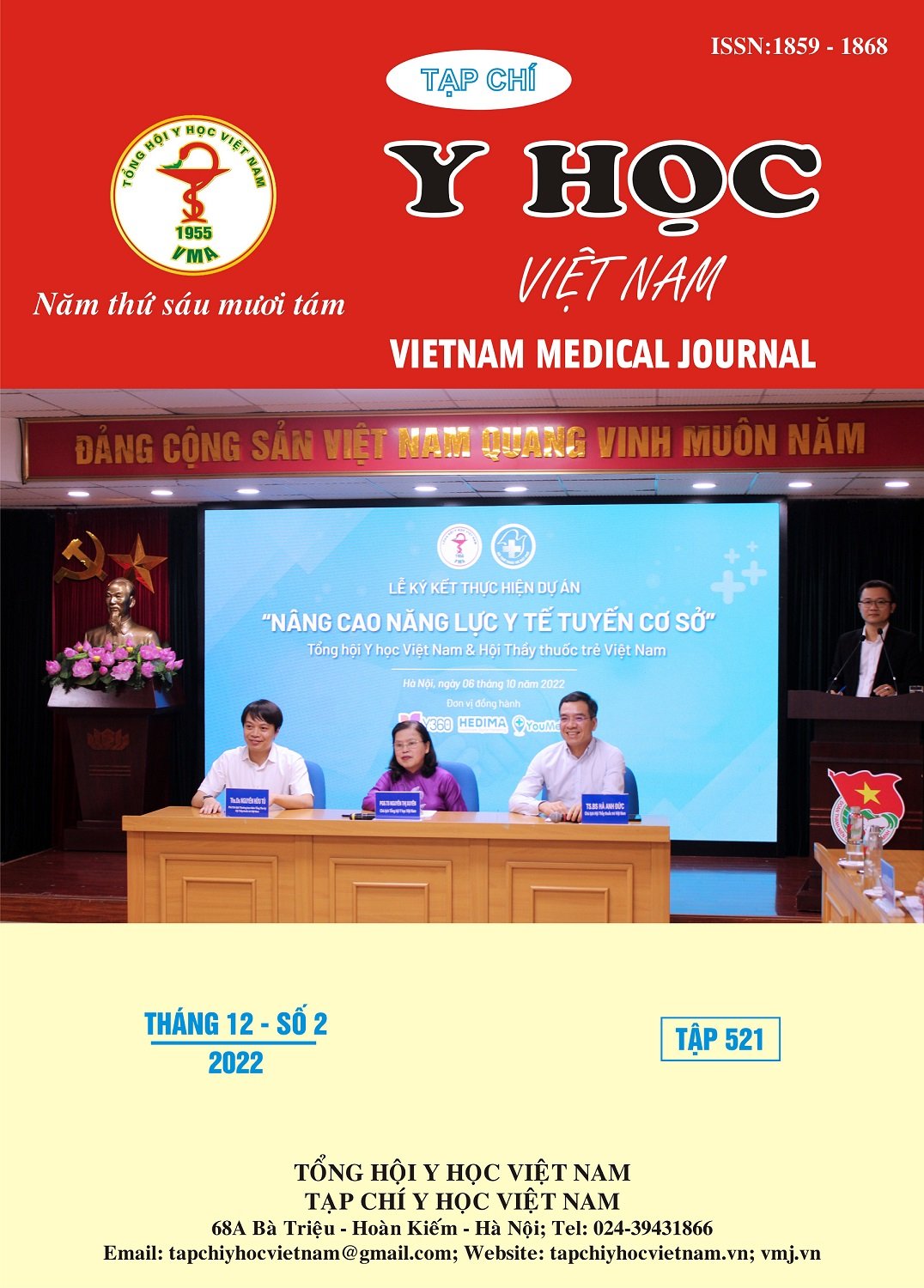REVIEW CLINICAL, PARACLINICAL AND RESULTS OF TREATMENT EMERGENCY PATIENTS WITH HYPOGLYCEMIA
Main Article Content
Abstract
Objectives: Review clinical, paraclinical characteristics, and management results and survey some factors related to hypoglycemia patients with disorder of consciousness in the Emergency Department. Subjects of study: Hypoglycaemic patients admitted to the Emergency Department from 7/2021 to 7/2022 with: blood glucose concentration at the time of admission <3.0 mmol/l. hypoglycemia emergency and monitor within the first 1 hour. Objects and Methods: descriptive cross-sectional and prospective studies. Results: The mean age of the study subjects was 66.1 ± 13.6 years old. Men accounted for 51.28%. hypoglycemia level 3 with 84.62%, level 2 accounts for 15.38%. Symptoms of tachycardia were common in the study with the rate of 25.64%; sweating is 23.08%; tremors accounted for 15.38%. Symptoms of lethargy accounted for a high rate of 41.03%; 30.77% of patients showed coma. 69.7% of patients have improved consciousness after the first 15 minutes of emergency hypoglycemia management; increased to 72.73% after 30 minutes and 1 hour. Patients with blood glucose concentration below 2.7 mmol/l had a 22.5 times higher risk of disorder of consciousness compared with the other group (95% CI: 1.43 – 355.07; p = 0.0013). Conclusions: Factors are blood glucose concentration less than 2.7 mmol/l, age over 60 years, and comorbid infections are factors that increase the risk of disorder of consciousness in patients with hypoglycemia.
Article Details
Keywords
Hypoglycemia, Disorder of consciousness, Emergency Department
References
2. Cryer PE. Mechanisms of sympathoadrenal failure and hypoglycemia in diabetes. J Clin Invest. Jun 2006;116(6):1470-3. doi: 10.1172/jci28735
3. Souza CV. Hypoglycemia, Diabetes, and Cardiovascular Events. Diabetes care. 2010;33(6):1389-1394.
4. Nguyễn Minh Tuấn. Khảo sát tình trạng hạ đường huyết và đáp ứng điều trị ở bệnh nhân đái tháo đường tuýp 2 nhập viện cấp cứu. Đại học Y Hà Nội; 2020.
5. Fischer KF, Lees JA, Newman JH. Hypoglycemia in hospitalized patients. New England journal of medicine. 1986;315(20):1245-1250.
6. Kumar JG, Abhilash KP, Saya RP, Tadipaneni N, Bose JM. A retrospective study on epidemiology of hypoglycemia in Emergency Department. Indian journal of endocrinology and metabolism. Jan-Feb 2017;21(1):119-124. doi:10.4103/2230-8210.195993
7. Kotera A, Iwashita S, Irie H, Taniguchi J, Kasaoka S, Kinoshita Y. An analysis of the relationship between Glasgow Coma Scale score and plasma glucose level according to the severity of hypoglycemia. Journal of Intensive Care. 2014/ 01/03 2014;2(1):1. doi:10.1186/2052-0492-2-1
8. Saikawa R, Yamada H, Suzuki D, et al. Risk Factors of Hypoglycemic Encephalopathy and Prolonged Hypoglycemia in Patients With Severe Hypoglycemia. Journal of clinical medicine research. Mar 2019;11(3):213-218. doi: 10.14740/jocmr3728
9. Halawa I, Zelano J, Kumlien E. Hypoglycemia and risk of seizures: A retrospective cross-sectional study. Seizure. 2015/02/01/ 2015;25:147-149. doi:https://doi.org/10.1016/j.seizure.2014.10.005


